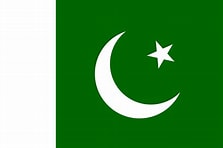The recent payment of the “massive” dividend of Rs.2.1 lakh crores by the Reserve Bank of India (RBI) to the Government against the anticipated transfer of Rs. 1 lakh crs or so, has led to a rising interest in the why and how of the transfer. To understand the background, a short note on the subject may be helpful.
The Reserve Bank of India (RBI) was established on April 1, 1935 in accordance with the provisions of the Reserve Bank of India Act, 1934 with a paid-up capital of Rs 5 crore. The Government of India (GoI) nationalised it in January 1949, making the sovereign the “owner”.
As an outcome of its multifaceted operations, RBI generates a surplus of income over expenses. This is paid out annually to GoI, the sovereign owners, under Section 47 of the RBI Act, “after making provision for bad and doubtful debts, depreciation in assets, contributions to staff and superannuation funds and for all other matters for which provision is to be made by or under this Act or which are usually provided for by bankers, the balance of the profits shall be paid to the Central government”.
The computation of the Surplus payment is based on the recommendations of a committee earlier constituted under the Chairmanship of ex-Governor Dr. Bimal Jalan, which have been approved and adopted by the Central Board of RBI. The rules mandate maintenance of a Contingency Risk Buffer (CRB) of 5.5 per cent to 6.5 per cent of its balance sheet by RBI from the surplus. In respect of many top central banks, viz., US Federal Reserve, Bank of England, German Bundesbank, Bank of Japan, etc., the laws make it clear that profits have to be transferred to the government or the treasury. The quantum of profits or percentage to be distributed is also specified in the laws.
A significant part of the surplus with RBI is generated from its operations in financial markets, when it intervenes to buy or sell foreign exchange; Open Market operations, when it attempts to hold inflation within a safe limit; as income from government securities it holds; as returns from its foreign currency assets that are investments in the bonds of foreign central banks or top-rated securities; from deposits with other central banks or the Bank for International Settlement or BIS; besides lending to banks for short tenures and management commission on handling the borrowings of State Governments and the Central Government. RBI buys these financial assets against its fixed liabilities such as currency held by the public and deposits issued to commercial banks on which it does not pay interest.
Normally, the Surplus paid out by RBI is transferred to the Consolidated Fund of India from which salaries and pensions to government employees are paid and interest payments done, besides spending on government programmes. In case of large payouts these can help the government cut back on planned borrowings and keep interest rates relatively low. Besides, it will provide space for private companies to raise money from markets. The windfall gain can also lead to a lower fiscal deficit. The other option is to earmark these funds for public spending or specific projects, which could lead to a revival in demand in certain sectors and boost economic activity.
Factors which are expected to have contributed to the larger than expected Surplus pay-out by RBI are:
1. Growing Foreign Exchange (FOREX) Reserves and their investment in income generating assets.
2. Increase in yields from 1-1.5% two or three years ago to 4-5% now.
3. Increased intervention by RBI for Market Stabilization.
4. Higher returns in Bond Markets.
5. Better deficit management leading to lower Interest payments.
6. Higher Tax collections requiring lower market funding for budgetary support, etc.
If the large divided from RBI and better returns from various sectors of the economy are sustained, these will prove to be of immense help as India steps up its drive to moving up in the national rankings.








